Brexit, Britain’s Exit from the European Union (EU) in essence is a decision for the United Kingdom (UK) to loosen ties with an EU steadfast on its way to becoming further and further centralised. This allows the potential for the UK to greatly strengthen ties and reconnect with the rest of the world.
Brexit is misrepresented in the mainstream media as an anti-immigration movement. Moreover the EU, a political project which seeks to achieve ever closer union (more centralisation), is represented simply as a market by the same mainstream media. Politically the European Union doesn’t sit well with the British public. EU mandated immigration policy doesn’t sit well with the British public and one of the reasons, not often cited by mainstream media is because it fails to allow the British to fully implement arrangements with non-EU countries that it has substantial ties to.
Instead of looking at net immigration to the UK let us instead look at a metric more representative of British people and their sentiment towards other countries, the metric of British emigration (showing top countries/blocks only).

Here we compare the top countries/blocks the EU, USA and Commonwealth countries Canada, Australia, New Zealand and South Africa. Out of the EU and USA there are slightly more Brits in the EU, however if we take into account the relative population size of the two blocks we see no substantial difference. The question therefore follows, why have a free immigration agreement with only the EU and not the USA? However the real hidden elephant in the room is the number of Brits who decide to immigrate to 3 other countries Canada, Australia and New Zealand. These three countries it should be noted are all outside the EU and are the countries which the British feel the highest degree of cultural and political affinity with. Canada, Australia and New Zealand alongside the United Kingdom itself collectively make the beautiful acronym CANZUK. The block of Canada, Australia and New Zealand host about 2.1 million British expats which is remarkable considering they have a combined population of about 70 million.
There is a remarkable mutual affection of British to the other CANZUK countries. Remarkably more British make their home in Canada, Australia and New Zealand which collectively have a combined population of ~70 million, than they do in both the EU and USA combined, whose combined population ~830 million is over ten fold that of Canada, Australia and New Zealand.
It is therefore absurd that there is no mutual free immigration agreement between the CANZUK countries. The reason for this has been because of the British membership of the European Union and the biggest issue with the European Union for Britain has been the EU’s block like mentality. The European Union tends to treat all countries in the European Union as a “block” and all countries outside this “block” are assumed to have an equal relationship to all countries inside the “block”. Britain has always been on the edge of this “block”, firstly sharing a language and a special relationship with the USA and sees the other CANZUK countries as family. As Dominic Raab recently put it:
Words such as friend and ally somehow fall short in describing the relationship between Britain and Canada. The ties that bind are so strong, the affinity between us so deep, that I prefer to think of our countries as different branches of the same family.
Dominic Raab (Britain’s Foreign Secretary)
The same can undoubtedly be said about the other CANZUK countries. Australia for instance has far better relations with Britain than it does any other European Country and the European Unions block like mentality this has harmed Britain’s and Australia’s relationship… This is seen time after time, when Free Trade Agreements are attempted to be implemented between Britain and Australia but is blocked by an Australian dispute with a European country. This happened recently with Italy for example, where tomatoes are unfairly subsidised via the European Common Agricultural Policy (CAP) – a European policy which the British already fundamentally disagree with.
British Eurosceptism of a European Union undergoing ever-closer Union or centralisation to a Federalised European Union has been rife for a long time in Britain. The feeling of such centralisation ripping Britain away from it’s family of non-EU nations has inevitably resulted in the vote for Brexit, the British Exit of the European Union. Brexit of course allows Britain to reconnect with these countries and work together with these countries in a way that it is not possible when it is shackled to a European Union. Incidentally the biggest issue with Brexit is maintaining United Kingdom close relationship with the Republic of Ireland as it remains subject to the EU’s block like mentality and special concessions are not made for the Republic of Ireland which is dependent on the UK for trade and also as a land-bridge to get to continental Europe.
Brexit: Aligning CANZUK Policies
The most two popular ideas regarding Brexit (Britain’s Exit from the EU) are policies based on two of the other CANZUK countries.
- The Australian Points Based Immigration System
- This brings the Border Policies of Canada, Australia, New Zealand and the United Kingdom in natural alignment
- Allows for the accession of the UK and Canada into the Trans-Tasman Travel Agreement Existing between Australia and New Zealand i.e. CANZUK
- The Canadian Style Trade Deal with the EU
- This brings the UK and Canada in high alignment when it comes to trade policy
- This sets the way forward for a CANZUK trade arrangement
There is also support for modelling Britain’s electoral system on Australia’s as the general public are feeling more and more frustrated over first past the post. With naturally aligning polices of the four CANZUK countries, a CANZUK treaty is more likely.
Dates of Interest
31st of October 2019
The date Britain is supposed to leave the EU (assuming no further delay). It is possible this has been deliberately delayed to follow on from the 21st of October.
21st of October 2019
Canadian Elections where the Canadian Conservative Party have a CANZUK Treaty as their flagship policy.
19th of August 2019: UK Government Releases Media Factsheet: EU Citizens and Freedom of Movement
Following woeful reporting by the mainstream media to hype up hysteria on the ending of freedom of movement, the UK Government release a Media Factsheet:
18th of August 2019: Brexit Secretary Signs Order to Scrap 1972 European Communities Act Ending All EU Law in the UK
This will allow the UK to have an independent trade and immigration policy, a necessary cornerstone for CANZUK:
14th of August 2019: CANZUK International Submit CANZUK Report to Every UK MP
24th of July 2019: Prime Minister Boris Johnson Installed
24th of May 2019: Theresa May Announces her Resignation on the 7th of June
23rd of May 2019: The European Elections the UK was Never Supposed to Have
The Brexit Party come out on top on the EU Parliamentary Elections taking about 1 in 3 voters with their strong stance to Leave the EU on World Trade Organisation terms following the EU’s failure to compromise with the UK government during negotiation. The runners up were the Liberal Democrats who voiced strong support for Remaining in the EU. The former Mainstream Parties, the Conservatives and Labour both lost substantial Vote Share due to their inability to agree and deliver Brexit on time. The Green Party also overtook the Conservative Party.


The recent English Local Elections mirrored these results, with the Liberal Democrats coming out on top. In these elections the number of spoiled votes was significantly high as the Brexit party wasn’t set to run in them. European Elections give a more nuanced public opinion on the EU as they are specifically about the EU.
20th of May 2019: UK Border Updated
The UK Border has been updated, adding the CANZUK countries to UK egates. In addition the UK and the EU are put into separate categories. This change is likely partially in response to Brexit which was due to occur on the 31st of March 2019.

29th of March 2019: The UK Government Fail to Brexit
The UK government fail to Brexit “on time”. A delayed date of the 31st of October 2019 is agreed with the EU.
27th of March 2019: MPs Vote on the 8 Brexit Alternative Plans
MPs vote on 8 alternative Brexit Plans. All 8 plans are rejected. Continued discussions are going to take place on the 29th of March 2019 (the date British MPs had promised being the date the UK leaves the EU) and 01st of April 2019. Brexit at a minimum looks to be delayed until the 12th of April 2019.
14th of February 2019: Mutual Recognition Agreements Will Continue Between the UK and Australia, New Zealand and the USA
11th of February 2019: Global Britain Report Released
The Henry Jackson society release the report Global Britain with support from the then British foreign secretary Boris Johnson (now Prime Minister). This report outlines support for CANZUK.
06th of February 2019: UK Government Respond to Petition
The UK government respond to Petition 224908: Brexit re article 50 it must not be suspended/stopped under any circumstances.

We have to look to the time when this process is finished. Yes, the result was 52% versus 48%. We have to work out how to heal the divide—in Parliament, but most importantly, out there in the country—and ensure that we can secure a Brexit that works for everyone. With regard to securing that Brexit, the petitioners and the 116,000 people who signed the petition can rest assured: the Government and a lot of Government Members certainly do not want to revoke article 50, but we do not want to extend article 50, either.
My hon. Friend the Member for St Albans (Mrs Main) agreed with my view that no one is going to die in a ditch about a couple of weeks, if there is a technical position to consider—a few of us have talked about that —but people saw what happened in the voting Lobbies a few weeks ago. My right hon. Friend the Member for Broxtowe (Anna Soubry) and my hon. Friend the Member for North East Somerset (Mr Rees-Mogg) were in the same voting Lobby, celebrating the same result. If we do not end up with a deal, one of those people—they are colleagues—is going to be sadly disappointed. They cannot both be right, given the positions that they took at that time. The obvious way to get through this in time to be able to leave on exit day, 29 March, is to ensure that we secure a deal.
I hope, as I said at the beginning, that we put forward a reasonable proposal to Brussels, in a reasonable way that allows people there the space that our colleagues in this place have had over the last week or so, ahead of that vote. That is what I urge. What changed over the previous weekend was that there was more emollient language from people on all sides of the debate, which allowed people to calm the temperature down a little. The hope is that we can do the same with Brussels. If people there are looking at alternatives in order to avoid a hard border and no deal, surely they can just look at this again and give us what we need on the Irish backstop to ensure that we can get a deal through. That would help us, clearly, but it would also help the EU—and without encouraging other people to leave. All we want is to be able to do our thing and to allow the EU to progress in the way it wants to. Let us be friendly neighbours—let us not be awkward tenants—and let us do that in the most clear way we can, so that we can all progress and move on.
Question put and agreed to.
Resolved,
That this House has considered e-petition 224908 relating to leaving the European Union.
Paul Scully
29th of January 2019: 7 Amendments to Withdrawal Agreement
The Brady amendment allows Theresa May to renegotiate her EU Withdrawal agreement with an alternative arrangements for the controversial backstop to avoid a Hard Border in Northern Ireland. The EU have already refused to re-negotiate this backstop making No Deal or rather trade negotiations carried out on World Trade Organisation (WTO) rules more likely with No Deal additional arrangements agreed.
The non-binding Spelman amendment rejects leaving the EU without a Deal however all other amendments seeking a Second Referendum, extension of Article 50 or an alternative customs arrangement with the EU are rejected.
The government responds to petition 224908: Article 50 must not be stopped under any circumstance.
The fact that the Spelman amendment is non-binding and passed with only a mere majority of 8 MP votes mean only 5 MPs need to swayed into supporting Leaving the EU without a Deal/conducting Trade on WTO. It is therefore recommended that the British general public continue to pile pressure on by keeping writing to their MPs and signing all the Brexit related petitions that they support on the uk.parliament.petitions website.
Amendment A: Labour Amendment (Failed)
Allows MPs to vote on a Customs Arrangement with the EU or a Second Referendum.

Amendment O: Blackford Amendment (Failed)
Extends Article 50 and rules out a No Deal Brexit emphasising that the Scottish and Welsh Assemblies voted overwhelming to reject Theresa May’s Deal.

Amendment G: Grieve Amendment (Failed)
The Grieve’s amendment proposes that the following dates are set out for debate on Brexit proposals put forward by MPs:
12th February 2019
26th February 2019
5th March 2019
12th March 2019
19th March 2019
26th March 2019
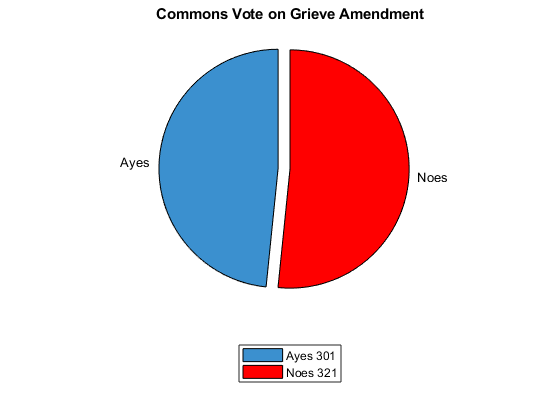
Amendment B: Cooper Amendment (Failed)
Article 50 would have to be postponed until the 31st of December 2019 if MPs do not approve a Deal by the 26th of February 2019.

Amendment J: Reeves Amendment (Failed)
Seeks an extension of Article 50 if there is no Brexit Deal approved by the house of commons.
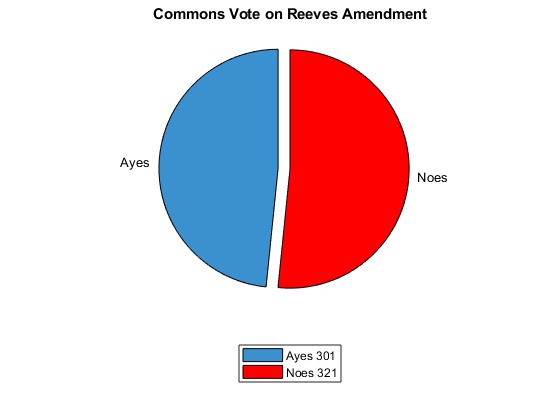
Amendment I: Spelman Amendment (Passed)
Non-binding amendment that rejects the UK quitting the EU without a withdrawal agreement.

Amendment N: Brady Amendment (Passed)
It allows Theresa May to negotiate with the European Union to seek “alternative arrangements” for the controversial backstop to avoid a Hard Border in Northern Ireland.
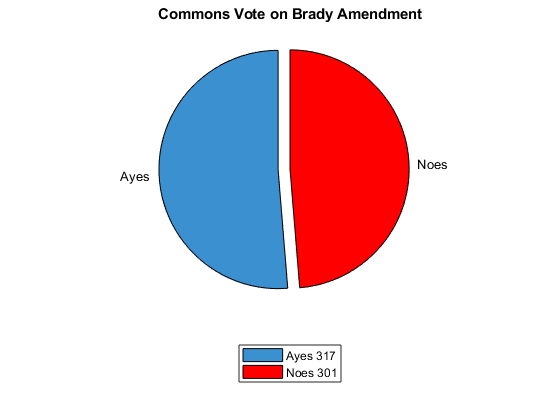
28th January 2019: Immigration and Social Co-ordination (EU WithDrawal)

15th January 2019: Theresa May’s Deal (Failed)
“Theresa May’s Deal” overwhelmingly rejected by House of Commons.
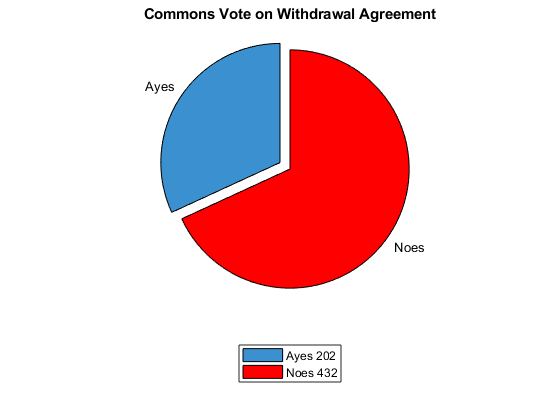
14th January 2019: Leaving the EU Government’s Response to Petitions
The government responds to petition 229963: Leave the EU without a deal in March 2019 alongside complementary petitions 221747, 235185 and counter petitions 232984, 231461 holding another EU referendum and 226509, 236261 not leaving the EU. It notes the most popular petition with approximately 3 times the signatures of the counter-petitions is petition 229963. This incidentally maps out in a similar pattern to the EU Referendum result corresponding to ~2 % of Leave Voters:
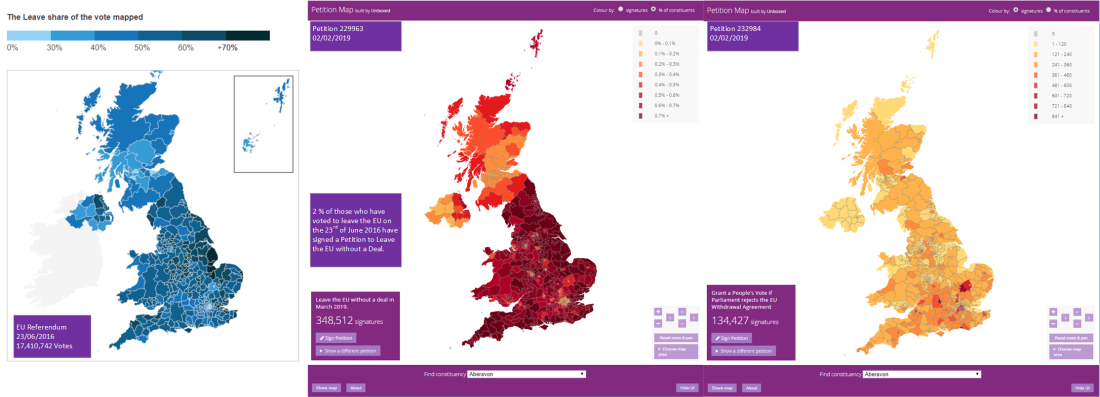
19th December 2018: UK Announces Australian Points Immigration System
UK Announces Australian Style Points Based Immigration System with Electronic Authorisation System and adds low risk visa overstayers to it’s e-gates:
Nationals from the USA, Canada, New Zealand, Australia, Japan, Singapore and South Korea will be allowed to use e-gates to enter the UK from next summer onwards. In 2017, 10.2 million people arrived from these countries and crossed the UK border, constituting over half of all arrivals from outside the EEA.
The EU releases Contingency Action Plan for No Deal which aligns with the UK when it comes to Settled Status, visa-free right of travel for tourism, basic connectivity for trade.
29th March 2017: Article 50 Triggered

The UK triggers article 50, giving a 2 year countdown to Brexit Day.
25th of August 2018: Canadian Conservative Party Commit CANZUK Treaty to Manifesto
In response to Brexit and the desire for the UK to have closer ties with Canada and 235,000 signatures to the CANZUK petition, the Canadian Conservative Party overwhelmingly vote for a CANZUK treaty.
23rd of June 2016: EU Referendum The UK Votes to Leave the EU
It is worth quoting the numbers of the EU referendum out in full: 17,410,742 (52 %) opted to leave while 16,141,241 (48 %) opted to Remain and this gave Leave a 1,269,501 (4 %) edge over Remain.
All Voters

Number of Constituencies

England
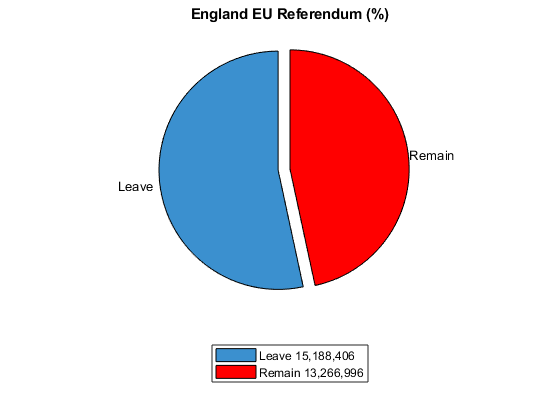
Northern Ireland

Scotland
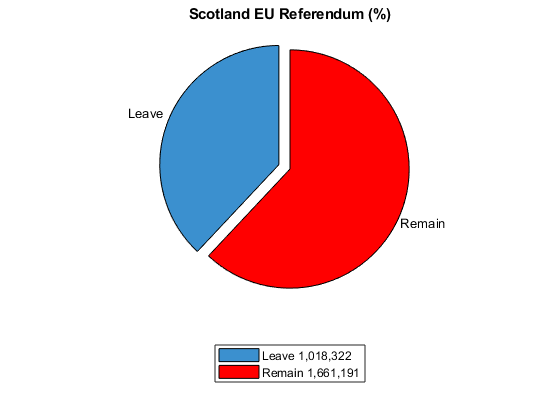
It is worthwhile comparing Scottish support for Remain in the UK vs Remain in the EU. As you can see substantially more Scots voted to Remain in the UK referendum than they did to Remain in the EU.

Wales
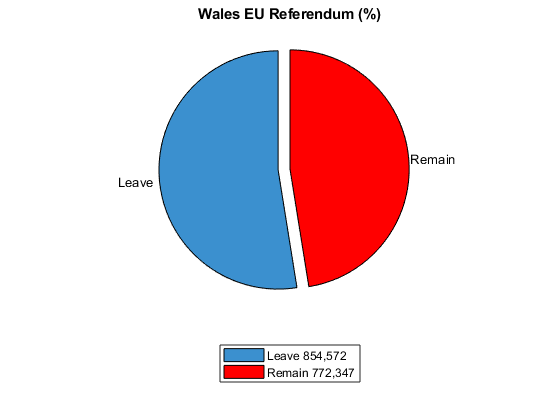
Combined
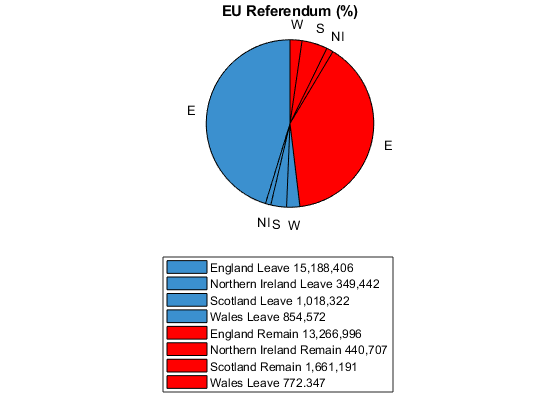
18th September 2014: Scottish Independence Referendum
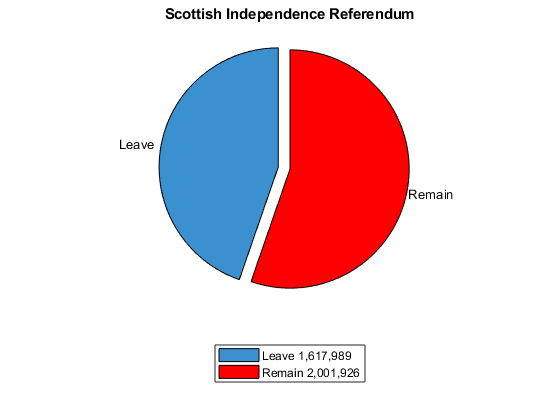
This post was originally published at: https://canzuk.net/brexit-britains-exit-from-the-eu/
 Daily Globe British Values, Global Perspective
Daily Globe British Values, Global Perspective




As a Brit picking this up and having tweeted about it in the recent past, I like the concept. However, I think the acronym is horrible. I would suggest UCANZ instead or even just UCAN.